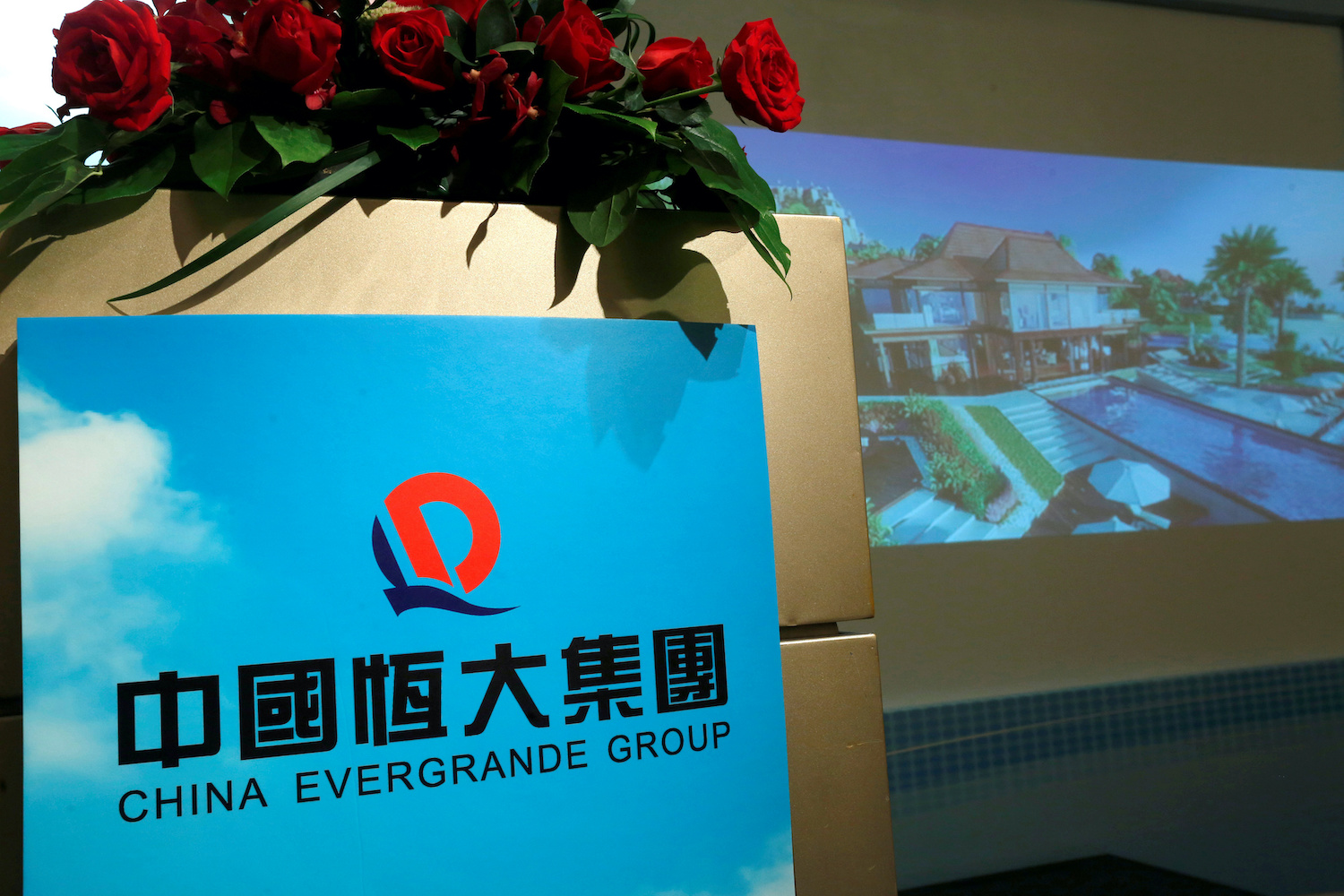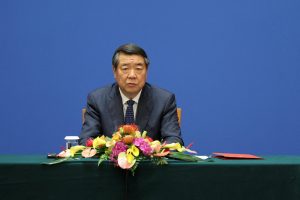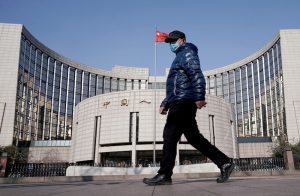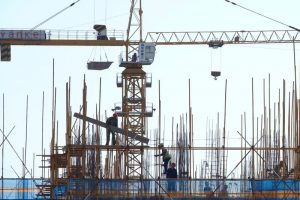Fitch became the second rating agency to downgrade China Evergrande Group in as many days and said a default ”appears probable,” piling more pressure on the troubled property developer.
Fitch cut its ratings on Evergrande and subsidiaries, Hengda Real Estate Group and Tianji Holding, to CC from CCC+ a day after Moody’s cut the company’s rating three notches to Ca because of its heightened risk of default.
The company’s shares fell more than 3% in early trading in Hong Kong on Wednesday, below their 2009 initial public offering price, before rebounding late in the day to close up almost 4% at HK$3.71. The stock has plunged by more than 70% this year.
“The downgrade reflects our view that a default of some kind appears probable,” Fitch said. “We believe credit risk is high given tight liquidity, declining contracted sales, pressure to address delayed payments to suppliers and contractors, and limited progress on asset disposals.”
Evergrande’s escalating financial decline is being watched around the world because of the size of its debt – reportedly nearly $305 billion (1.97 trillion yuan) – and the risk of contagion across China’s banking and property sectors. The company is China’s second-largest property developer with Fitch saying it has 798 projects in 234 cities throughout the country’s 31 provinces and municipalities.
Evergrande plans to suspend interest payments due on loans to two banks on Sept. 21, financial intelligence provider REDD reported on Wednesday, citing four sources briefed by bankers. Evergrande has delayed payments to several trust firms, REDD reported, adding that the company may suspend all payments to its wealth management products starting Sept. 8.
Slow Progress
Fitch said it saw few signs of progress in the sale of Evergrande’s property management business, Evergrande Property Services Group, or its new-energy vehicle business, China Evergrande New Energy Vehicle Group Ltd. It cautioned there was “significant execution risk” surrounding their disposal and said that raised the possibility of default on offshore bond interest payments.
While Evergrande does not have any bonds maturing in 2021, Fitch estimated that it faces bond interest payments of $129 million in September alone and $850 million before the end of the year.
The company has also been struggling with payments to suppliers. On Tuesday, a stock exchange filing showed that Evergrande had outstanding liabilities worth 562 million yuan to a supplier, Skshu Paint Co Ltd, as of the end of August. Evergrande’s failure to pay some commercial paper on time in June triggered a sell-off in its shares and bonds, and a growing number of suppliers have filed lawsuits to recover overdue payments.
Warning
Fitch said a key factor in its decision was the company’s own earlier warning that it may default on its borrowings if it fails to mitigate liquidity issues by promoting sales, extending loans, disposing of assets, or finding new investors.
“The recent drop off in contracted sales has weakened Evergrande’s ability to repay short-term debt,” it said. ”Reported contracted sales plunged by 26% year-on-year in August 2021, after dropping by 13% in July 2021 and 6% in June 2021, even though Evergrande has been selling properties at a discount to generate cash. The average selling price was down by 26% y-o-y in August 2021, or by 11% y-o-y through to 8M21, while the gross profit margin narrowed to 13% in 1H21, from 25% in 2020.”
China’s macro leverage down
Meanwhile, China’s macro leverage ratio, which measures the economy’s overall indebtedness, stood at 274.9% at end-June, down 4.5 percentage points from the end of last year, China Finance said on Wednesday. The drop was due to the receding impact of the Covid-19 epidemic on the Chinese economy and a decline in overall debt growth, said China Finance, a magazine managed by the central bank, citing the Financial Survey and Statistics Department at the People’s Bank of China. The macro leverage ratio is expected to remain basically stable in H2, it added.
• By Jim Pollard, Kevin Hamlin, and Reuters
ALSO SEE:
Pressure Mounts On China Evergrande As Bonds And Shares Tumble
China’s property stocks plummet to 10-year low despite home sales frenzy
China’s land sale limits will push property sector consolidation: Moody’s
China pushes for property tax to rein in runaway home prices
Chinas “grey-rhino” property market could trigger subprime-like crisis
























